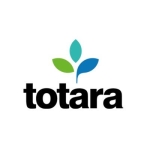What is our primary use case?
The system is primarily used to host online learning products and to track completion as well as reporting.
What is most valuable?
Its basic usability is very good. Usability and accessibility are very, very good in Moodle and it's got all the basic features required to host a learning solution.
The interface is good.
It doesn't take long to learn how to use it and to set up basic courses and things like that.
What needs improvement?
Setting up groups and allocating privacy settings to different groups is quite complicated. Sometimes we need the help of administrators and sometimes backend supporters to set those things up. If that could be made more accessible, that'll be very useful.
For how long have I used the solution?
I used it for two years until as recently as January this year.
What do I think about the stability of the solution?
The solution is completely stable. It's a rock-solid solution. There aren't issues with bugs or glitches and it doesn't crash or freeze.
What do I think about the scalability of the solution?
The simpler versions can scale. The cloud versions may be scalable. However, with on-prem versions and with the more custom settings you have, the more difficult it is to scale it.
We had over 20,000 end-users. It was used for a countrywide organization, for pharmacists. There were a fair bit of people. Internally, we had about 20 of us touching it on a regular basis.
An increase in usage is dependent on how many more members we would have in the organization. Every member had to use Moodle. If they had to complete their required certifications as pharmacists, for example, the solution was deployed on Moodle, so pretty much everyone used it. A large number of people would use it daily.
How are customer service and support?
We needed to reach out to support previously. Technical support is good if you can find someone, however, getting someone on an ad hoc basis is difficult. When we have an LMS person who is actually conversant with the Moodle backend and the tech behind it, then it's okay, otherwise, it's a challenge.
Which solution did I use previously and why did I switch?
I don't know what they had before Moodle, however, my understanding was that it was legacy-based. It might have been some SharePoint LMS kind of a thing. I don't know if they had a specific LMS as a lot of the training and others were developed and deployed in face-to-face settings. When the world started changing towards a more digital learning platform, that's when the company got Moodle.
How was the initial setup?
I don't remember how they implemented Moodle. That was before my time. I only started using it as a learning designer.
The initial setup was at least a three-month process from what I understand.
It does require maintenance and we had a backend administrator who looked after that. Initially, when the external provider set Moodle up, they were there for a while until this administrator got his comfort level up. After that, he was on his own.
What was our ROI?
We did see an ROI while using this product.
What's my experience with pricing, setup cost, and licensing?
The enterprise pricing range is very good. I'd recommended Moodle at one point as it's open-source. The base features are available regardless. It's not like you pay for anything. It's the enterprise solution and tech support that you really pay for. Therefore, it's reasonably priced for what you get with it.
The only additional were setting up deployment, offering initial tech support, and customizing it. Out-of-the-box it is regular pricing, however, if you want it customized, then you will be paying something additional for that. Also, integrating it with the CRM, which is Salesforce, had an integration cost component.
What other advice do I have?
I was just a customer.
I'd advise potential new users to play around with the free version first.
Test it prior and get the blueprint right. Whenever the deployment happens, what people do, is they go for what looks like the easiest possible way to deploy it for a bandaid solution. That's what most frequently happens. They don't consider scalability, for example. They don't consider potential future states and so they build a blueprint. They don't consider potential future integrations with CRMs and other software. So plan. Plan it properly. Have your blueprint ready, follow a scenario. A lot of forward scenario planning is good.
Otherwise, it's a lot of cost overhead if you want to change the blueprint since you have data. Imagine if we had to change the organization's blueprint now with 20,000 people's ongoing certification data, and their compliance requirements with the government and other medical bodies. Therefore, depending on what the organization is, there's a lot to lose if you don't blueprint it properly. Get the functional specs right.
I'd rate the solution at a seven out of ten.
Which deployment model are you using for this solution?
On-premises
Disclosure: My company does not have a business relationship with this vendor other than being a customer.






















